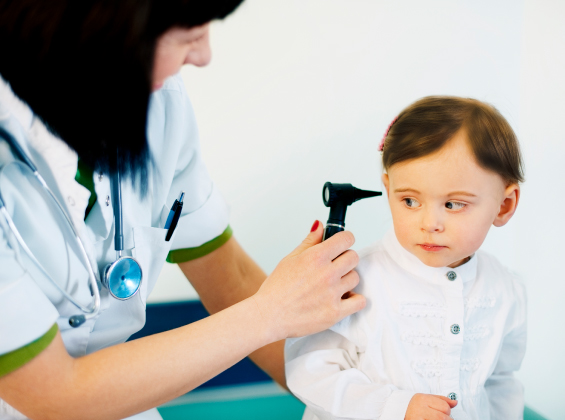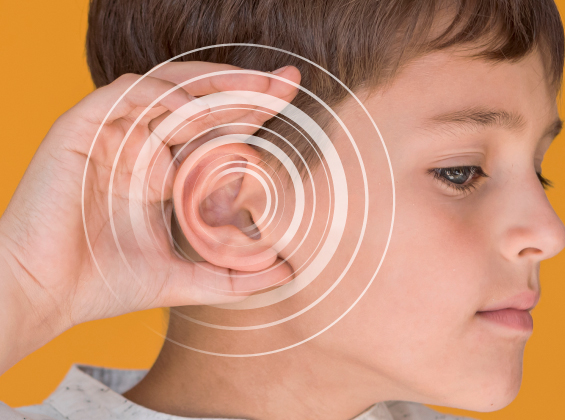Kids and Ear Infections: Tips for Parents to Prevent and Manage

Ear infections are a common issue in children, especially those under the age of five. These infections can cause significant discomfort and even lead to complications if not properly managed. As a parent, it's important to know how to prevent ear infections and how to handle them if they do occur. Here are some practical tips for preventing and managing ear infections in kids.
Understanding Ear Infections in Children
Ear infections, or otitis media, occur when the middle ear becomes inflamed due to bacteria or viruses. The infection often follows a cold, sore throat, or respiratory infection, as the eustachian tubes (which connect the middle ear to the back of the throat) can become blocked, leading to fluid buildup in the ear.
Common symptoms of an ear infection include:
- Ear pain or discomfort
- Tugging or pulling at the ear
- Difficulty hearing
- Fluid drainage from the ear
- Fever
- Irritability or fussiness
- Trouble sleeping
- Loss of appetite
Tips for Preventing Ear Infections
Breastfeed When Possible
- Why it helps: : Breastfeeding for at least the first six months of life can help reduce the risk of ear infections. Breast milk contains antibodies that boost the baby’s immune system.
- Tip: If breastfeeding, try to avoid bottle-feeding while the baby is lying flat, as this can cause milk to flow into the eustachian tubes, leading to infections.


Maintain Good Hygiene
- Why it helps: Teaching kids to wash their hands frequently can help prevent the spread of germs that cause respiratory infections, which often lead to ear infections.
- Tip: Encourage regular handwashing, especially after playing with other children, using the bathroom, or before eating.
Avoid Secondhand Smoke
- Why it helps: Exposure to tobacco smoke can increase the risk of ear infections by irritating the eustachian tubes and weakening the immune system.
- Tip: Keep your home and car smoke-free, and avoid taking your child to places where they might be exposed to secondhand smoke.
Keep Vaccinations Up to Date
- Why it helps: Vaccines, like the pneumococcal vaccine and the flu shot, can help protect against the infections that often lead to ear infections.
- Tip: Make sure your child receives all recommended vaccinations according to the schedule provided by your pediatrician.
Reduce Pacifier Use
- Why it helps: Prolonged pacifier use, especially beyond age two, has been associated with an increased risk of ear infections.
- Tip: Limit pacifier use to bedtime or comfort moments, and aim to wean your child off the pacifier by the age of one or two.
Manage Allergies
- Why it helps: Allergies can cause inflammation and congestion, leading to blocked eustachian tubes and a higher risk of ear infections.
- Tip: Work with your pediatrician to identify and manage your child’s allergies through medications, environmental controls, or dietary changes.
Tips for Managing Ear Infections
Recognize the Symptoms Early
- Why it helps: Early detection allows for prompt treatment, which can alleviate discomfort and prevent complications.
- Tip: Be alert to signs like ear pulling, irritability, or trouble sleeping, especially following a cold or respiratory infection.
Consult a Pediatrician
- Why it helps: A doctor can confirm an ear infection and recommend the best course of treatment, which may include antibiotics, pain relievers, or watchful waiting.
- Tip: Always follow the doctor’s instructions carefully, particularly when it comes to finishing prescribed antibiotics, even if your child feels better.
Use Warm Compresses
- Why it helps: Applying a warm compress to the affected ear can help reduce pain and inflammation.
- Tip: Use a warm (not hot) washcloth and hold it gently against the ear for 10-15 minutes. Repeat as needed for comfort.
Keep the Child Hydrated
- Why it helps: Drinking fluids can help thin mucus and promote drainage from the eustachian tubes.
- Tip: Offer plenty of water and fluids, especially during a cold or flu, to help prevent ear infections and aid recovery.
Elevate the Head While Sleeping
- Why it helps: Elevating the child’s head can help fluid drain from the ears and reduce pressure.
- Tip: For older children, elevate the head of the bed or use an extra pillow. For infants, elevate the crib mattress slightly by placing a pillow under the mattress, not under the baby.
Manage Pain
- Why it helps: Pain from an ear infection can be intense, especially at night.
- Tip: Use over-the-counter pain relievers like acetaminophen or ibuprofen (for children older than six months) to help alleviate pain. Always check the correct dosage and consult with a pediatrician before giving any medication.
When to Seek Medical Attention
While many ear infections resolve on their own, there are times when you should seek medical attention:
- High fever: If your child has a fever higher than 102°F (39°C) or a fever that lasts more than two days.
- Persistent symptoms: If ear pain or other symptoms persist for more than a few days despite treatment.
- Fluid drainage: If you notice fluid, pus, or blood coming from your child’s ear.
- Hearing loss: If your child has trouble hearing or complains of muffled sounds.
- Repeated infections: If your child has frequent ear infections, your pediatrician might recommend seeing an ENT specialist for further evaluation.
Conclusion
Ear infections can be a painful and frustrating experience for both children and parents, but with proper prevention and management, you can reduce the likelihood and impact of these infections. By following good hygiene practices, maintaining a smoke-free environment, and keeping up with vaccinations, you can help protect your child from ear infections. And if an infection does occur, early detection and appropriate care can ensure a swift and comfortable recovery.